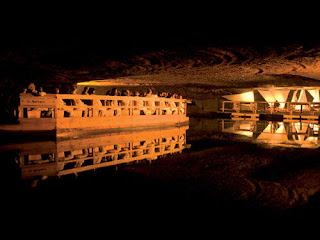In contrast to the senior high school I attended, which was a public school, 再興 was a private school with only 3 classes each for its junior high and senior high divisions, and therefore a smaller but closer-knit body.
The dinner was at an up-scale hotel at the heart of the town. We reserved a banquet room just for ourselves, 23 in total. Half of them I didn't know, since they were from the senior high division; half of the junior high people I sort of knew, since they were from different classes; and the remaining half I really knew, since they were literally the mates I sit in the same classroom with day in and day out through my junior high years, including one year living in the same dorm.
One of the main purpose of this reunion group is to promote health awareness and encourage one another to live healthier lives. Many of attendees today were doctors or of medical background. They shared their take on various health issues and real life encounters with them. One of them in particular has been promoting end-of-life care for years and is in charge of all the municipal hospitals in Taipei. He shared with us the sweat and tears, heart break and joy of working and developing relationships with towns folks and the theatrics of dealing with city council... All so endearing and interesting stories from a now avuncular looking buddy who was just a kid like me sitting a row or two behind some 43 years ago.
Besides doctors, the guy sitting to my left is a businessman, my right a lawyer, the chairman of the group himself the chief executive of a multi-national conglomerate, and many other alums who did not attend today are professionals working and living in China, Hong Kong, Japan, Southeast Asia, US, etc. Even the hotel restaurant manager is a 再興 alum.
They shared stories about a fun trip they made recently, a gathering of guys from different parts of the world flying all over to Hong Kong just to attend and celebrate the wedding of one of their own. The camaraderie and enthusiasm shown were enviable.
One incident that triggered the forming of this more formal alum group, I heard, happened last year, when one of the alums, after a late night business meeting in Shanghai, got injured in a serious traffic accident and remained in coma. Though they tried getting the best doctors and treatment through their alumni network to save him, he still didn't make it.
I remember when we were in school, every Monday morning there was a "Mental Rally Talk" (精神講話) session by the principal (who's also the founder of the school), and at the end of her speech, she would always exhort us to "invoke 再興 Spirit" (發揚再興精神) to do great things. It sounded so cliche at that time, and nobody really knew what "再興 Spirit" meant. But looking at what these fifty-somethings are doing, helping each other and the society in general in ways they can, I think I know what that "再興 Spirit" means, and that our long deceased lady principal would be smiling and very proud of her boys now!
Biggest round table I ever saw in Taipei, seating 23
Some of us only attended Junior High (such as I), some Senior High only, some both
These up close and personal classmates of my Junior High years. The big guy at the center in black, nick named "Uncle Jian", is one well known and respected end-of-life care advocate in Taiwan
One serious looking boy at 15



























